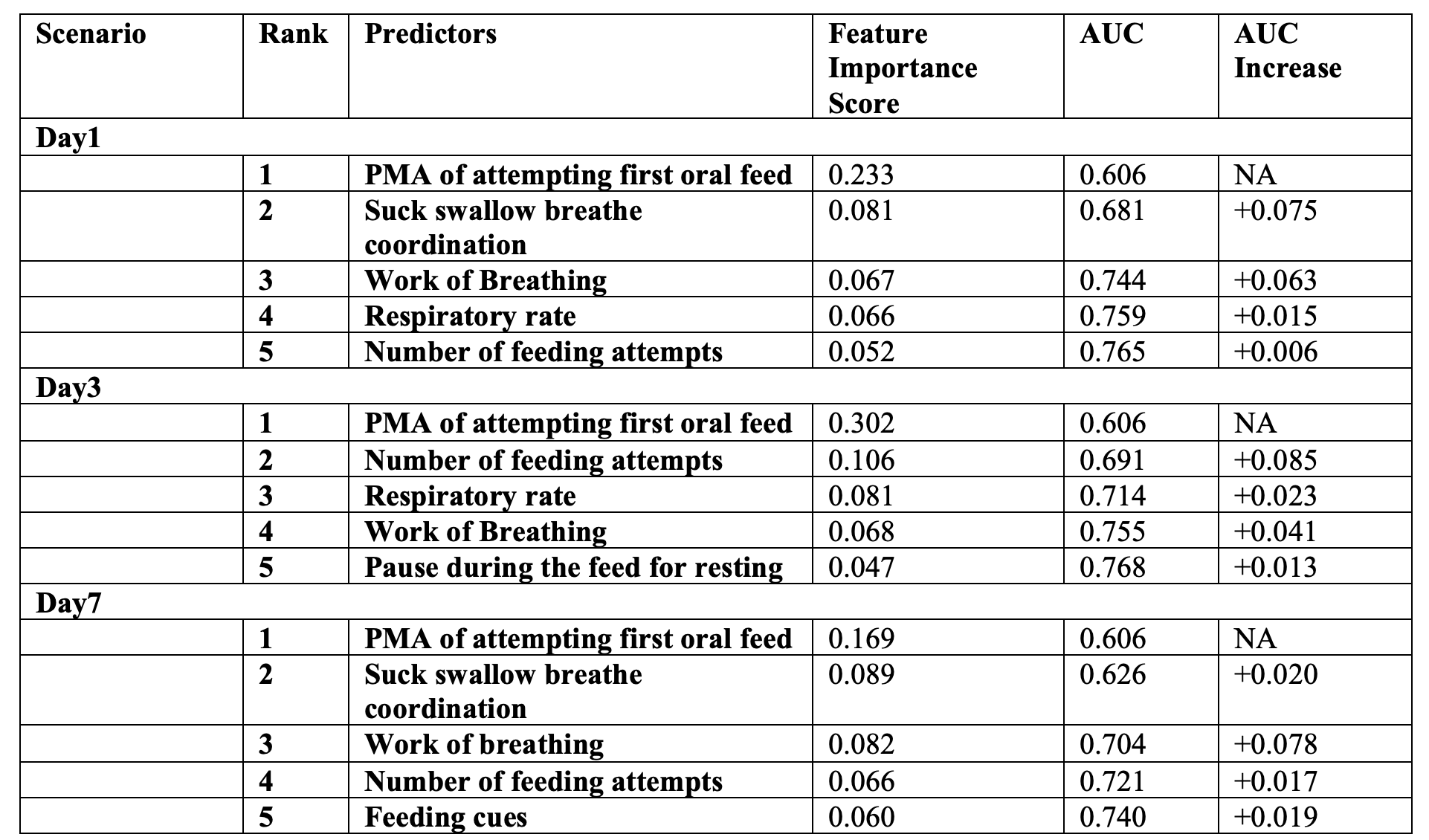Neonatal GI Physiology & NEC
Neonatal GI Physiology & NEC 5: Predicting Necrotizing Enterocolitis, Gut Health, and Oral Feeding
107 - Prediction Of Early Oral Feeding Achievement In Preterm Infants
Publication Number: 107.237

Vivek Shukla, MD (he/him/his)
Assistant Professor
University of Alabama at Birmingham
Birmingham, Alabama, United States
Presenting Author(s)
Background:
Independent oral feed achievement is a common barrier that results in delays in the discharge of preterm infants.
Objective: We tested the hypothesis that variables available at the initiation of oral feeding will accurately (AUC >0.70) predict early independent oral feed achievement in preterm infants.
Design/Methods:
Single tertiary center, prospective, observational study including preterm infants born from June 2019 to January 2022 with birth gestational ages between 250/7 to 326/7 weeks. Early independent oral feed achievement (early PO) was defined as achievement of independent oral feeding within 35 days of oral feeding initiation, whereas achievement after this time point was defined as delayed independent oral feeding (late PO). The following variables were collected per feed for the first 14 days after oral feeding initiation: work of breathing, responsiveness to care, suck-swallow-breathing coordination, oral feeding interventions, and reasons for discontinuation of feeds. Predictor variables were considered on the following days after oral feeding initiation: 1, 3, and 7. The scenario datasets were randomly divided into training (70%) and validation (30%) datasets. Predictive models included conventional Logistic Regression and several machine learning models, including Support Vector Machine, K Nearest Neighbors, Decision Tree, and Random Forest. Accuracy, precision, recall, F1, and AUC scores were compared to identify model performance by scenario. Random Forest importance recursive feature elimination measure was used to identify the feature importance score to determine the hierarchy of important predictors by scenario.
Results:
A total of 259 infants were included, of which 162 infants achieved early PO. The gestational age was higher in the early PO group (29.9w) compared to the late PO group (28.4w; p< 0.001). The support vector machine was overall the best-performing model (Table 1). Post menstrual age of attempting first oral feed was the top predictive variable in all three scenarios. Suck-swallow-breathe coordination, work of breathing, respiratory rate, number of feeding attempts, pause during the feed for resting, and feeding cues were identified as other included predictors (Table 2).
Conclusion(s):
Using advanced machine learning–based modeling methods, the current study showed that the variables available at the initiation of oral feeding accurately predicted early independent oral feed achievement in preterm infants and that the post menstrual age of attempting first oral feed was the most important predictor.


